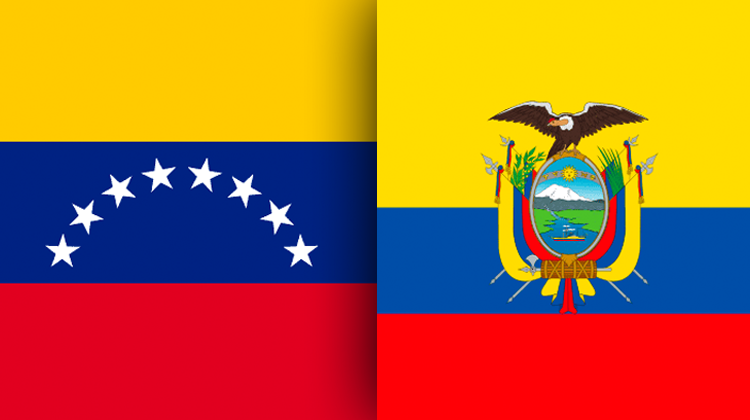Being a country so close to Venezuela, whose history of independence is closely intertwined with our own, the truth is that I had no idea what I would find in Ecuador in terms of similarities or differences. However, living in this beautiful country has gradually taught me that there are many things that unite us, but our differences are even greater.
Here is a brief account of the local customs that have gradually eroded the Venezuelan customs I brought with me, to the point that I have almost forgotten what it means to be Venezuelan in my daily life.
1. Our eternal breakfast with arepas is not a reality here:
When I arrived in Ecuador, I remember buying cornmeal religiously on two occasions to make my breakfasts with that dish that is so customary for Venezuelan people. However, when I decided to fully immerse myself in Ecuadorian culture, I realized that they don't have a fixed breakfast like we usually do with arepas. I have to confess: I was so enchanted by the diversity of Ecuadorian food that I traded my arepas for it.
2. The way I used to request a stop in public transportation:
In Caracas (Venezuela) is very different from what is the reality here. I used to think that transportation providers in Caracas were very rough and rude until I met Ecuadorians. Especially in Guayaquil, where I lived during the first 8 months of my stay in Ecuador, the contrast was impressive. It's not enough to politely ask the driver to let me off at the stop or use phrases like "around here" (por aquí) or appeal to their generosity with a "wherever you can, please.” (donde pueda, por favor).
In Guayaquil, the norm is to be bold and approach the door, signaling to the driver that the bus is approaching the place where you want to get off, even if the speed at which it's moving gives you a bit of a chill, thinking about the prospect of getting off the bus in case of a sudden stop. On the other hand, in Quito, there are fixed stops (which is not the case in Guayaquil), and to request a stop, there is a bell that alerts the driver that you want to get off there.
3. Cheeses, cheeses, cheeses:
I could confidently say that the thing I miss the most about Venezuelan food is the variety of cheeses we have there. Here, there are no specialized cheese shops (charcuterías) like in Venezuela. I remember that when I arrived, one of the first things I expected to find was a good delicatessen, but the mere mention of it (the word charcutería is not used in Ecuador) sounded so strange to my Ecuadorian friends that I gave up on the idea. With time, I came to understand that the "cheese culture" in this country is not like in Venezuela. The “Manaba” cheese is spoken highly of (and it's truly delicious), but it's the only type of cheese that can be considered distinctive to Ecuador.
4. Plantains (el plátano):
In Venezuela, el plátano were synonymous with "tajadas" or "maduro frito" (fried ripe plantain) for my Ecuadorian friends, and on special occasions, "patacón" or fried green plantain. In our diet, plantains, except in the Zulian region, are usually consumed when ripe.
Here, I learned (especially in Guayaquil) that "verde" (green plantain) is to Ecuadorians what cornmeal is to Venezuelans: used to make arepas, empanadas, bollos, hallacas, and more. Once again, I must confess that I fell in love with the charms of a "bolón mixto" (a green plantain ball with cheese and pork cracklings) with beef broth and a fried egg, or a green plantain “tortilla” with cheese, fried egg, and coffee as a way to start the day. Yes, my habit of eating “tajadas” has truly come to an end.
5. Coffee:
I was quite surprised to find out that instant coffee is commonly consumed here, which in Venezuela is a rarity reserved for baking purposes when a touch of coffee is needed in the mix. So, I've forgotten about the habit of drinking freshly brewed coffee (café coladito) because that type of coffee is hard to come by, and I haven't made an effort to search for it either (I must admit that I wasn't a big coffee enthusiast in Venezuela). Although it's not something I've greatly missed, it's a custom that I have lost.
6. El cochino o chancho (pork):
In Venezuela, due to cost and hygiene reasons, eating pork ribs or fried pork was not something I could do regularly or anywhere. In fact, I only ate pork if it was prepared by my dad or when I went to Barinas (the land of very delicious beef barbecue). In Ecuador, on the other hand, much to my immense delight, pork is a regular part of the Ecuadorian diet. So, goodbye to waiting for my dad to buy ribs or planning a visit to the plains to enjoy some delicious fried pork. Here, whenever I feel like it, I can confidently and immensely enjoy some "chanchito" (pork) at any time.
7. My aversion to the soup:
Here it disappeared. Especially in the Sierra (Quito). The diversity of soups they have here far surpasses what I knew about soups in Venezuela. I didn't like soups very much there. But here, I have gone crazy for soups. In fact, it no longer bothers me that lunch consists of soup and a "second course" (which comes after the soup), and sometimes I even miss it when I don't eat out. I have my favorite soups: caldo de bolas, sopa de queso, and caldo de patas. No more words needed, here I learned to love soups.
8. In Ecuador they don’t get drunk:
I mean, the word used to refer to that is not the same as in Venezuela. There, we call it “rascarse”. In Ecuador it is “chumarse”. And what remains the next day after a night of heavy drinking, it's not a severe hangover (un ratón) but a "chuchaqui" that, according to the cheerful coastal people, can be cured with a good "encebollado."
Final reflection:
As you can see, despite being two Spanish-speaking countries, Ecuador and Venezuela have numerous differences in their customs as well as in the way they name the elements around them. That's what makes Spanish such a varied and diverse language, but at the same time, it can be very complex because general communication formulas are not always effective being part of a regional group of Spanish speakers.
Can you share differences in customs and words to name the same things in your native language?







